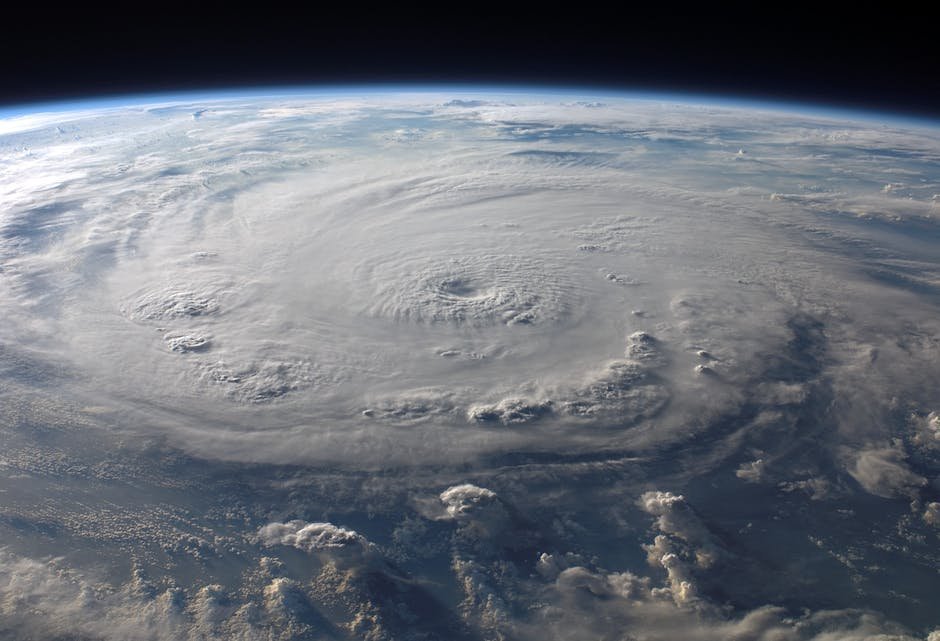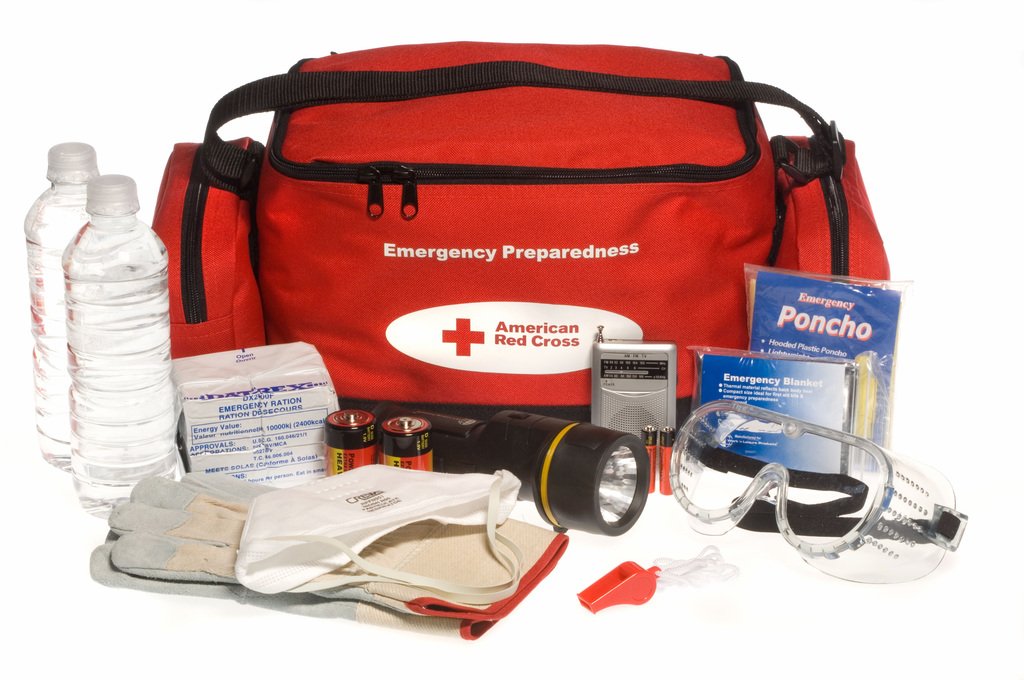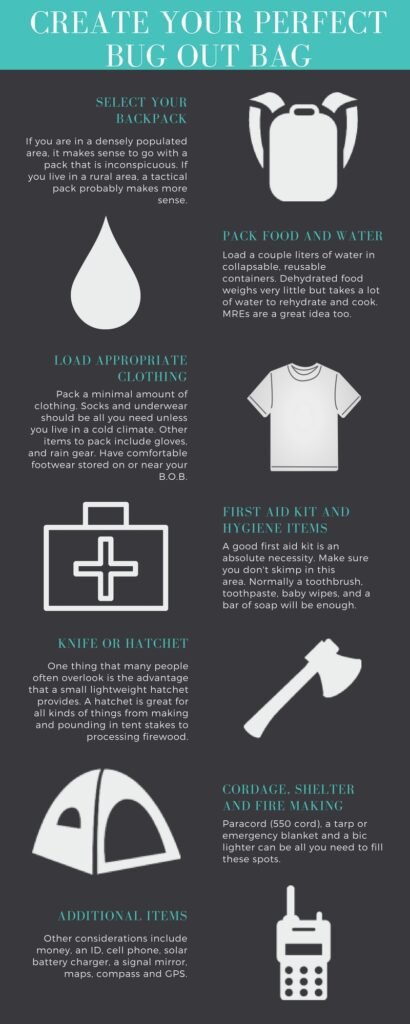Now Reading: How to Prepare for a Hurricane: A Step-by-Step Guide
-
01
How to Prepare for a Hurricane: A Step-by-Step Guide

How to Prepare for a Hurricane: A Step-by-Step Guide
Dark clouds gather ominously in the distance as the wind begins to howl, mercilessly rustling the leaves. There is an unsettling feeling in the air, a foreboding sense that nature is about to unleash its fury upon the world. It is in moments like these that we are reminded of the immense power of hurricanes. These colossal storms, with their swirling winds and torrential downpours, have the ability to wreak havoc and leave destruction in their wake. To navigate through the trepidation and uncertainty of such a catastrophic event, it is crucial to be well-prepared. In this step-by-step guide, we will unravel the secrets behind fortifying your home, gathering essential supplies, and maintaining communication during a hurricane. Brace yourself, for we are about to embark on a journey towards safety amidst the stormy chaos.
Table of Contents
- Preparing Your Home for a Hurricane: Essential Steps to Ensure Safety
- Building a Hurricane Emergency Kit: Stocking Up on Essential Supplies
- Creating an Emergency Plan: Key Considerations to Safeguard Your Loved Ones
- Evacuation Preparedness: Ensuring a Smooth and Safe Escape
- Staying Informed: Reliable Sources and Updates for Tracking Hurricanes
- Q&A
- To Wrap It Up

Preparing Your Home for a Hurricane: Essential Steps to Ensure Safety
When it comes to hurricane preparedness, ensuring the safety of your home and loved ones should be your top priority. Taking the necessary steps to ready your home for a potential storm can make all the difference in minimizing damage and staying safe. Here are some essential tips to help you prepare your home for a hurricane:
- Create a disaster supply kit: Put together a well-stocked emergency kit that includes essentials such as non-perishable food, water, medications, batteries, flashlights, and a first aid kit. Don’t forget to include important documents and cash.
- Secure your windows and doors: Install storm shutters or plywood over windows to protect against flying debris. Reinforce doors with sturdy locks or braces. Don’t forget to secure your garage door as well.
- Clear your surroundings: Trim trees and branches near your home that could potentially cause damage if they fall during the storm. Secure outdoor furniture, grills, and other loose objects that could become projectiles in strong winds.
- Check your home insurance: Review your insurance policy to ensure you have adequate coverage for potential hurricane-related damages. Consider flood insurance if you live in a high-risk area.
- Plan for evacuation: Familiarize yourself with your area’s evacuation routes and make a plan for you and your family. Prepare important documents, necessities, and a go-bag in case you need to leave your home quickly.
Remember, being proactive and prepared is crucial when it comes to hurricanes. By following these essential steps, you can greatly increase the safety and protection of your home during a potentially dangerous storm.

Building a Hurricane Emergency Kit: Stocking Up on Essential Supplies
Preparing for a hurricane is crucial to ensuring the safety and well-being of yourself and your loved ones. One essential task in hurricane preparedness is building a comprehensive emergency kit. Whether you live in a hurricane-prone area or are anticipating a storm, having the necessary supplies can make all the difference in navigating through the aftermath.
When assembling your hurricane emergency kit, it’s important to consider both immediate needs and potential long-term disruptions. Here are some essential supplies to include:
- Food and Water: Stock up on non-perishable food items that can last several days, such as canned goods, dry snacks, and instant meals. Don’t forget to allocate at least one gallon of water per person, per day, to cover drinking and sanitation needs.
- First Aid Kit: A well-stocked first aid kit is indispensable during emergencies. Include bandages, adhesive tape, antiseptic wipes, pain relievers, prescription medications, and any specific medical supplies required by family members.
- Communication and Lighting: Flashlights, spare batteries, and a portable radio are essential to keep you informed and connected in case of power outages. Consider including a solar charger or a power bank to keep your devices charged.
- Personal Hygiene: Maintain cleanliness and sanitation by including items such as hand sanitizer, wet wipes, toilet paper, and feminine hygiene products in your emergency kit.
- Clothing and Bedding: Pack a change of clothes, sturdy shoes, blankets, and sleeping bags to ensure warmth and comfort in case you need to evacuate or deal with extended power outages.
Remember, being prepared means having these essential supplies readily available ahead of time. Don’t wait until the last minute, as stores may run out of crucial items during the rush before a hurricane. Stay safe, stay prepared!
Creating an Emergency Plan: Key Considerations to Safeguard Your Loved Ones
When it comes to the safety of our loved ones, being prepared for emergencies is of utmost importance. As unpredictable as life can be, having a well-thought-out emergency plan can make all the difference in critical situations. Here are a few key considerations to safeguard your loved ones:
- Assessing Potential Hazards: Start by identifying the potential hazards in your area such as natural disasters (earthquakes, hurricanes), health emergencies (pandemics), or everyday incidents (fires, accidents). Understanding the risks allows you to tailor your plan accordingly.
- Creating Communication Channels: Establishing effective communication channels is crucial during emergencies. Make sure everyone in your family knows how to use cell phones, two-way radios, or other communication devices. It’s important to have an agreed-upon meeting place or a contact outside the area to reunite if circumstances prevent communication.
- Assembling an Emergency Kit: Prepare an emergency kit with essentials like non-perishable food, water, first aid supplies, medications, flashlights, batteries, and important documents. Remember to include any specific items your loved ones may need due to health conditions.
- Assigning Responsibilities: Assigning specific roles and responsibilities to each family member can streamline your emergency response. This ensures that everyone knows their duties and can act promptly when needed, helping to mitigate panic and confusion.
Remember that emergencies can happen at any time, so it’s essential to update your plan regularly, communicate it to all family members, and practice drills to ensure readiness. By taking these key considerations into account, you can establish a comprehensive emergency plan that safeguards your loved ones when they need it most.
Evacuation Preparedness: Ensuring a Smooth and Safe Escape
When it comes to evacuations, preparedness is key to ensuring a smooth and safe escape. In times of emergencies such as natural disasters or unforeseen events, having a well-thought-out plan can make all the difference. Here are some essential tips to help you stay prepared:
- Emergency Supplies: Always keep a well-stocked emergency kit handy. Include essentials such as non-perishable food, water, flashlights, batteries, first aid supplies, and necessary medications. Don’t forget to periodically check expiration dates and replenish items as needed.
- Evacuation Routes: Familiarize yourself with evacuation routes in your area and have alternative options in case certain roads become inaccessible. Consider mapping out multiple routes that you and your family can follow depending on the situation.
- Communication Plan: Establish a communication plan with your loved ones to ensure everyone is accounted for during an evacuation. Share contact information, designate a central meeting point, and consider having a backup method of communication such as walkie-talkies or a designated family member in another location.
- Pets and Special Needs: If you have pets or family members with special needs, remember to include them in your evacuation plan. Research pet-friendly shelters or accommodations if needed, and ensure you have the necessary supplies for their care.
- Important Documents: Keep important documents, such as identification papers, financial records, and insurance policies, in a secure and easily accessible place. Consider making digital copies and storing them in a password-protected cloud service for added protection.
By taking the time to prepare for an evacuation, you can minimize stress and increase your chances of a safe escape. Remember, being proactive and having a well-executed plan can help protect yourself and your loved ones in times of crisis.
Staying Informed: Reliable Sources and Updates for Tracking Hurricanes
When it comes to hurricanes, staying informed is essential for both residents in affected areas and those who want to stay updated on potential risks. The good news is that there are several reliable sources and platforms available to help you track hurricanes in real-time. Here are some of the best options:
- National Hurricane Center (NHC): Operated by the National Oceanic and Atmospheric Administration (NOAA), the NHC is the primary source for hurricane tracking and forecasts. Their website provides detailed information, including storm location, intensity, and projected paths. You can also subscribe to their email alerts or follow their social media accounts for instant updates.
- Local Weather Stations: Local weather stations, such as those affiliated with national news networks, often provide frequent updates during hurricane events. Tune in to their broadcasts or check their websites for the latest updates specific to your area. They often provide maps, storm surge predictions, and safety tips that can help you stay prepared.
- Mobile Apps: Many smartphone apps are designed specifically for tracking hurricanes. Some popular ones include Hurricane Tracker and Storm Radar. These apps provide real-time tracking of storm systems, allow you to set alerts for specific locations, and even offer interactive radar images for a more detailed understanding of the storm’s trajectory.
Remember, in times of severe weather, it’s crucial to rely on official sources and avoid spreading unverified information. By staying informed using these reliable sources, you can make informed decisions to protect yourself, your loved ones, and your property during hurricane events.
Q&A
Q: What should I do to prepare for a hurricane?
A: Start by creating an emergency kit with essentials like food, water, and medical supplies. Secure your home by boarding up windows and doors, and bring in any items that could be blown away by strong winds. Stay informed about the storm’s progress through radio or TV updates.
Q: How important is it to have an emergency kit?
A: An emergency kit is crucial as it ensures you have vital supplies during and after a hurricane. It should include non-perishable food, water, flashlights, batteries, a first aid kit, medications, and important documents.
Q: Is there anything specific I should do to protect my home?
A: Before a hurricane, trim any weak or overhanging branches that could potentially damage your property. Reinforce garage doors, and store outdoor furniture and other items that could become projectiles. Consider installing storm shutters or plywood to protect windows.
Q: How can I stay informed about the hurricane’s progress?
A: Stay tuned to local news channels and regular weather updates on the radio. Follow meteorologists and authorities on social media for accurate information. Additionally, sign up for emergency alerts from your community or government websites.
Q: Should I evacuate if a hurricane is approaching?
A: Follow the guidance of local authorities. If they issue an evacuation order, it’s crucial to heed their advice to ensure your safety. Evacuation plans should be made in advance and include important documents, medications, and a place to stay.
Q: What should I do during the hurricane?
A: Stay indoors and away from windows. Keep your emergency kit nearby and be prepared for power outages. Follow any instructions or warnings given by authorities and do not venture outside until you receive the all-clear.
Q: How can I secure my pets during a hurricane?
A: Make sure your pets are wearing identification tags and have necessary paperwork, as they may need to be boarded or evacuated to a pet-friendly shelter. Prepare a pet emergency kit with food, water, medication, and a carrier or leash.
Q: What steps should I take in the aftermath of a hurricane?
A: Check for any damages to your property but be cautious of hazards. Avoid standing water, fallen power lines, or damaged buildings. Contact your insurance company to report any damages and begin the claims process. Stay updated on community recovery efforts.
To Wrap It Up
In the swirling chaos of a hurricane’s violent winds and torrential downpours, preparedness becomes our greatest shield against the ever-unpredictable forces of nature. As we reach the end of this step-by-step guide, it is our hope that you have gained the insight and knowledge necessary to confront this tempest head-on, armed with the wisdom of readiness.
Remember, while we cannot control a hurricane’s path or intensity, we can control our response to it. Each step outlined in this guide serves as a fortification against uncertainty, a foundation upon which your resilience can be built. By heeding the warnings, securing your home, assembling supplies, and formulating a comprehensive evacuation plan, you have empowered yourself to weather the storm, both literally and metaphorically.
Ultimately, the battle against a hurricane is not one that can be fought alone. It is a community effort, where neighbors extend helping hands and strangers become allies in the face of adversity. As you prepare, reach out to your loved ones, friends, and neighbors, ensuring their safety and wellbeing. The bonds forged by mutual assistance and shared experiences are what will sustain us through the darkest hours.
We must stress the importance of staying informed throughout the storm, relying on credible sources of information to make decisions that will safeguard your life and those around you. Take advantage of modern technology, but also remain attuned to the intuitive guidance of nature and your own instincts. Listen to the calling of your surroundings and heed the signs of the elements that surround you.
As we conclude this guide, know that you are not alone in this preparation. Communities, organizations, and authorities stand ready to support and guide you through the tempestuous journey ahead. Remember, the aftermath of a hurricane may be trying, but it is also a time to rebuild, renew, and come together stronger than ever before.
Go forth, armed with the knowledge to prepare, the resilience to endure, and the compassion to uplift those around you. May you find solace in knowing that by taking these precautionary measures, you have become a beacon of preparedness, a symbol of hope in the face of adversity. Together, we shall weather the storms, emerge stronger, and forge ahead towards brighter horizons.
As an affiliate, my content may feature links to products I personally use and recommend. By taking action, like subscribing or making a purchase, you’ll be supporting my work and fueling my taco cravings at the same time. Win-win, right?
Want to read more? Check out our Affiliate Disclosure page.





